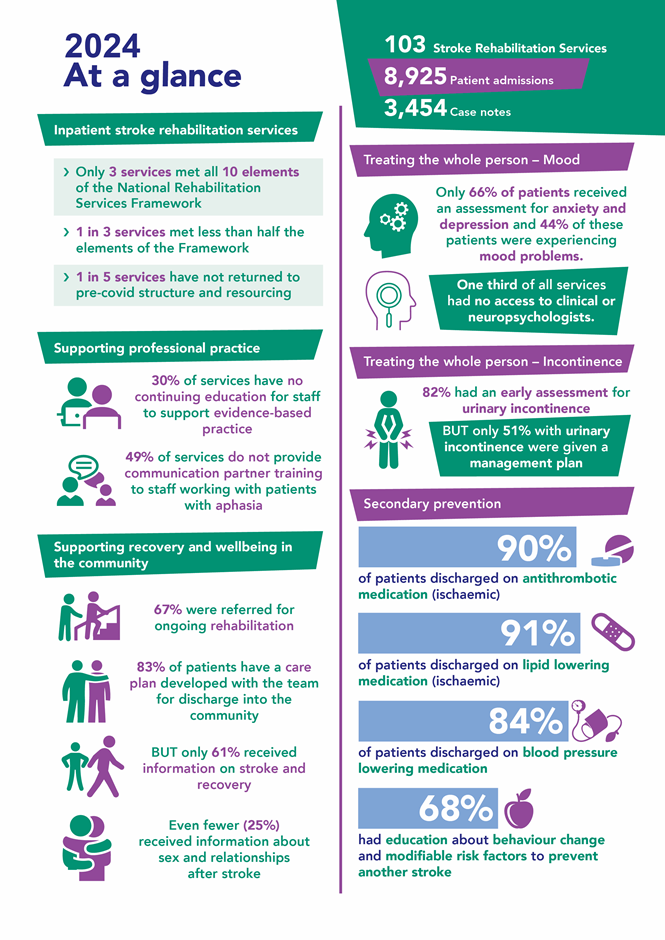Rehabilitation audits
The Rehabilitation Audit measures the quality of hospital based stroke rehabilitation care in Australia -- helping clinicians, healthcare administrators, and governments to identify improvement opportunities of rehabilitation services throughout Australia.
Forming part of the National Stroke Audit Program, the biennial audit tracks the adherence of evidence-based stroke care from rehabilitation services, to recovery goal setting process, to discharge outcomes.
2024 Rehabilitation Audit
The last Rehabilitation Services Audit was held in 2024. Download the 2024 report

Available reports
- 2024 National Stroke Audit - Rehabilitation Services Report
- 2020 National Stroke Audit - Rehabilitation Services Report
- 2020 National Stroke Audit - Rehabilitation Services Report Supplement
- 2020 at a glance
- 2018 National Stroke Audit - Rehabilitation Services Report
- 2018 at a glance
- 2016 National Stroke Audit - Rehabilitation Services Report
- 2014 National Stroke Audit - Rehabilitation Services Report
- 2012 National Stroke Audit - Rehabilitation Services Report
Where the data comes from
Rehabilitation audits are part of the National Stroke Audit and comprises:
An Organisational Survey
An Organisational Survey of rehabilitation hospitals across Australia provides information about the resources available to deliver rehabilitation stroke care, such as the availability of interdisciplinary staff and ensuring a client-centred approach to rehabilitation that addresses the whole person.
The Organisational Survey questions assess adherence to the Rehabilitation Stroke Services Framework 2022, which provides national recommendations related to stroke rehabilitation elements of care, including effective links with acute stroke service providers, early assessment for neuro-rehabilitation, written goal setting processes and community reintegration.
A Clinical Audit
The Clinical Audit involving the retrospective review of up to 40 consecutive patients measures adherence to evidence-based process of care outlined in the Clinical Guidelines for Stroke Management 2017.
These processes of care include timely assessments by clinicians, diagnostic procedures, early interventions, interdisciplinary care and discharge planning. Timing of the delivery of various aspects of care and discharge outcomes are also measured.
The Australian Stroke Data Tool (AuSDaT) provides hospital clinicians in acute and rehab settings to collect clinical monitoring in stroke care. Visit the Australian Stroke Coalition website for more information on AuSDaT. The AuSDaT can be directly accessed at tool.ausdat.org.au
Are you an auditor participating in the 2024 rehab audit? Access auditor training materials


